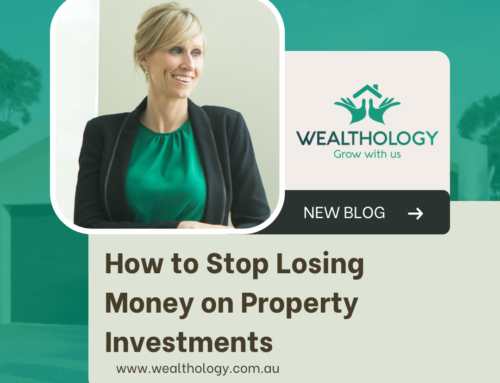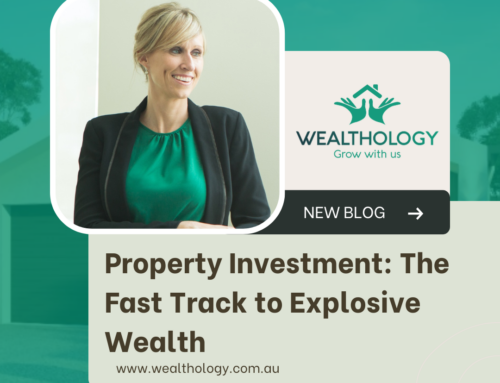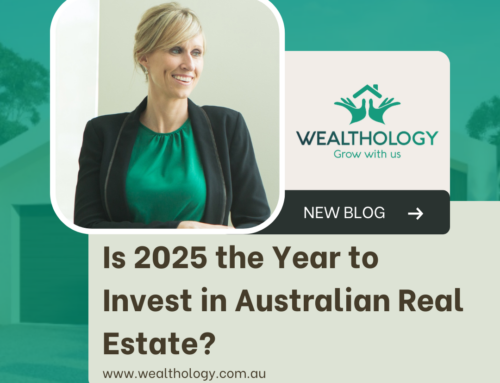According to RP Data and the Census Data from 2011 only 7.9% of Australians own an investment property, even though property is a national past-time. And only 0.068% own six or more investment properties.
A lot of people are overwhelmed by the process and quit before they even begin but it doesn’t have to be hard. The reality is that investing in property is relatively straightforward when you work with someone who knows what they’re doing.
Working with both experienced investors and first-time investors one thing we find that is common is the relief people feel when taking that first step (or next step) on their wealth journey.
Before You Get Started
It’s best to understand what it is you are looking to achieve by investing in property. Most investors want to secure their financial future, get themselves set up and perhaps retire a little early – creating the freedom to have choices in their life.
In order for you to achieve your goals it’s important to spend some time getting clear on what they actually are. Then you can work backwards, reverse engineering the steps you need to take in order to achieve those goals.
For example, if you’re looking to replace your income and retire on your investments within 15 years, you can start by creating a 15-year plan, broken down further to 10-yearly, 5-yearly, 2-yearly, annual – all the way down to weekly timeline. This way you break the big goals in to smaller tasks which means you don’t get overwhelmed by the enormity of the goal.
What are you currently doing to create the future you desire?
Why Property?
Property is often seen as less risky than other investments – I’m sure you’ve heard the saying ‘safe as houses’. It’s a remarkably flexible investment, you have 100% control, it’s relatively easy to get finance and it’s very easy to get started.
Here’s some other reasons why property is considered a great investment:
√ Save you thousands of dollars in tax – The ‘negative gearing’ tax laws allow you to offset any shortfall between the rent that you collect from your investment property and the expenses that you pay for against your other assessable income.
√ Generate a passive income – The income often coming from an investment property is greater than the expenses resulting in a surplus of cash every cycle (whether it’s weekly, monthly, yearly, etc.).
Below is an example of a negatively geared property which has positive cash flow after tax benefits.
Rent: $23,400
Rates, management fees, insurance etc: -$4,500
Interest: -$23,500
Cash flow before tax:-$4,600
Depreciation-$2,500
Capital Works/Special Building write-off:-$5,600
Tax Loss:-$12,700
Tax Refund at 49% tax rate: $6,223
Positive cash flow after tax: $1,623
√ Capital Growth – A property goes up in value and the growth results in a profit.
√ Depreciation – Most people know that when you rent out an investment property you can claim a deduction for the outgoings such as council rates, water rates and agent management fees. However, many investors forget about claiming depreciation (the decline in value of property assets over a period of time). The ATO sets out rates of different items, such as floor coverings, kitchen appliances and air conditioners that can be depreciated, along with the building cost.
Make Sure You Stay Focused
Investing in property is a business decision, not an emotional reaction so you must stay focused. Reassess your goals regularly (at least every 12 months), continue moving forward and don’t get distracted or you will be taken off track.
Knowing by when you want to have completed your property portfolio and what that looks like is key so know your timeframe by when you want to retire, or be in a financial position of your liking.
It’s easy to get overwhelmed at times but don’t give up. Imagine, if you buy the right properties at the right time in 15 years you could be sitting back, feeling happy and secure and even proud that you created something better for yourself and your family.
You will now have options, choices and you could be living the life you desire by simply taking small steps which will make a big difference. You just need to get started.
Need Some Help To Get Started?
If you’re currently not in the financial position you’d like to be and would like to discuss steps you’re going to need to take talk to us. We’d love to help.





